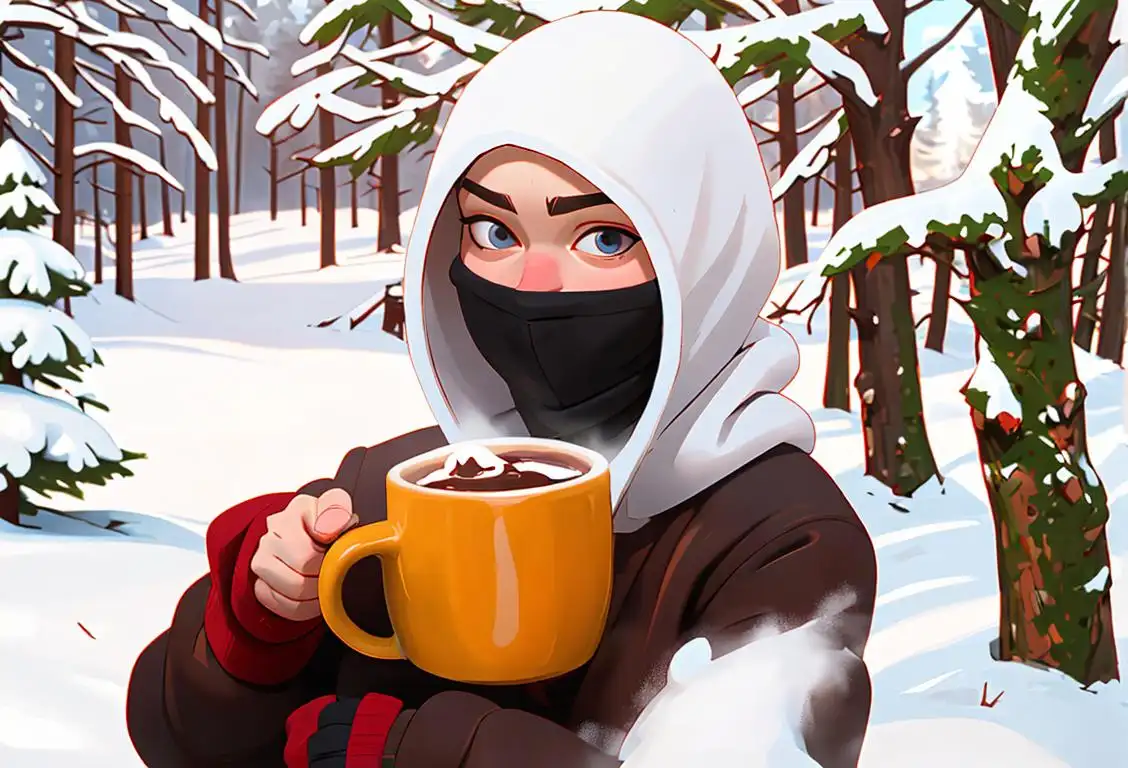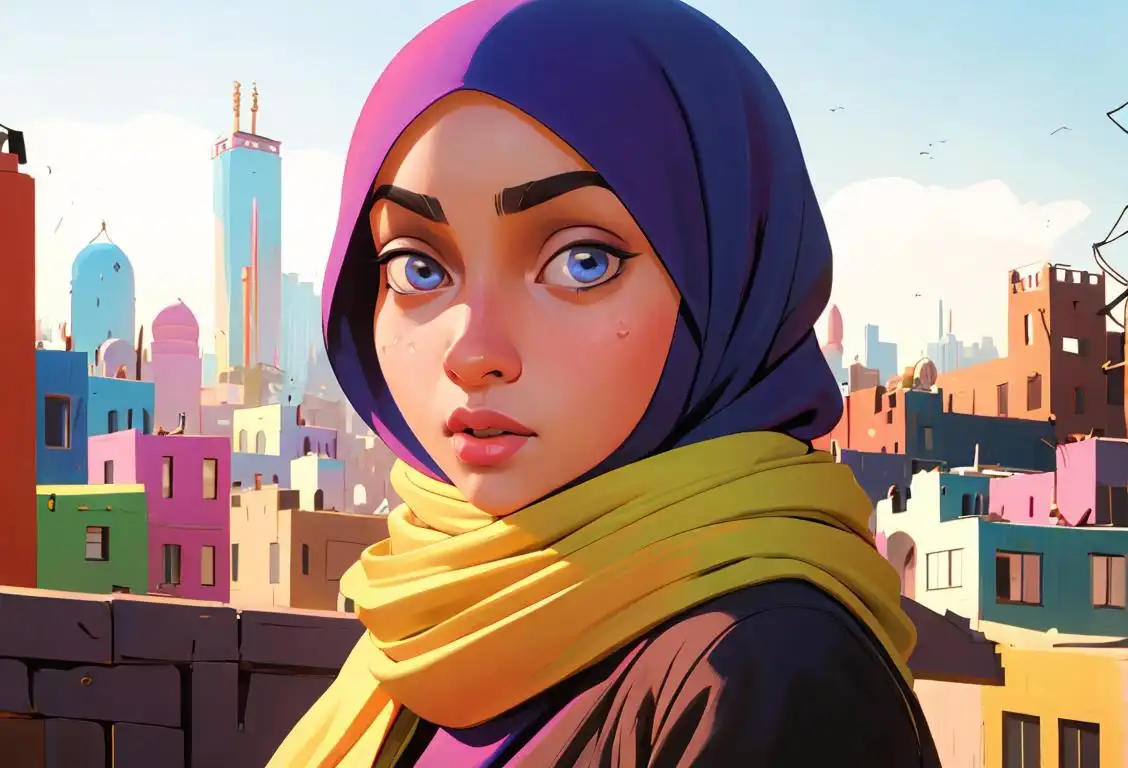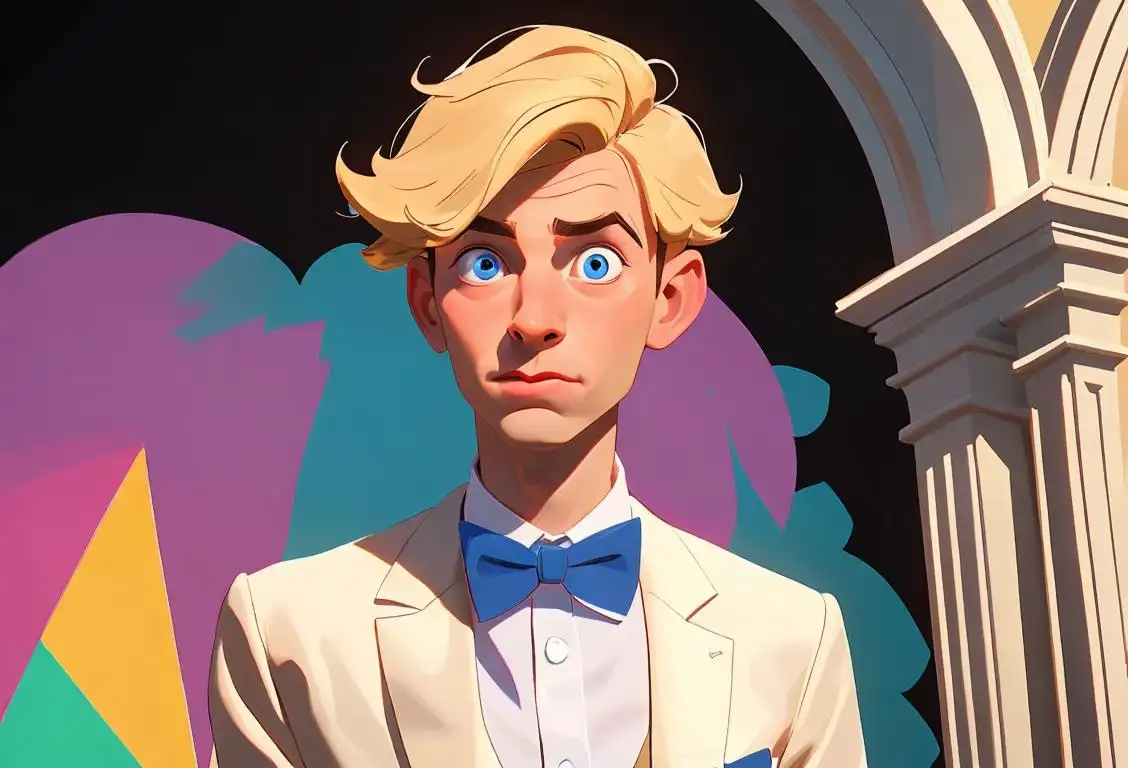National Balaclava Day

Welcome to the thrilling world of National Balaclava Day! Strap on your cozy headgear and get ready to dive into the fascinating history of this peculiar celebration.
When is Balaclava Day?
It's national balaclava day on the 16th August.
What is National Balaclava Day?
National Balaclava Day is a day dedicated to the iconic and mysterious piece of headwear known as the balaclava. This snug and distinctive garment, often associated with cold weather and covert operations, has an interesting history both on and off the internet.
The Internet's Obsession with Balaclavas
The internet has always had a soft spot for strange and unique fashion statements, and the balaclava is no exception. Online communities and social media platforms have embraced the balaclava, turning it into a symbol of anonymity, intrigue, and even humor.
From internet memes featuring cats wearing balaclavas to hilarious videos of people pranking their loved ones with unexpected balaclava appearances, the internet has truly shown its eclectic creativity when it comes to the beloved headgear.
Origin and National Day Status
The exact origins of National Balaclava Day are shrouded in mystery, much like the balaclavas themselves. It's unclear who first declared this day of celebration or why, but one thing's for sure: people around the world have embraced the occasion and found joy in donning their balaclavas.
While National Balaclava Day may not have an official recognition from any governing bodies, it has become a popular online phenomenon. On August 16, 2018, the internet experienced a surge of mentions related to this peculiar celebration, with enthusiasts and curious individuals sharing their love for this unique form of headgear.
Fun Fact: Balaclava Etymology
Did you know that the word 'balaclava' has an interesting origin? It's named after the Battle of Balaclava, a conflict that took place during the Crimean War in the 19th century. Soldiers wore similar headgear to protect themselves from the harsh weather conditions, and the name stuck!
History behind the term 'Balaclava'
1854
Origin of the name
The term 'balaclava' originated in 1854 during the Crimean War. It was named after the Battle of Balaclava, a crucial battle in which British forces fought against the Russian Empire. The battle took place in Balaclava, a small town in Crimea, now part of Ukraine.
1854
The Naming of the Garment
In the early 19th century, during the Crimean War, soldiers were in dire need of protection against the harsh winter weather. The term 'balaclava' can be traced back to this time when British troops found themselves freezing in the bitter cold during the Battle of Balaclava. It was during this battle, in 1854, that the soldiers started wearing knitted headgear that covered their heads, necks, and most of their faces, resembling the shape of the Crimean town of Balaclava.
1857
Introduction of the iconic headgear
In 1857, following the Crimean War, the term 'balaclava' became associated with a specific type of headgear. This headgear covered the whole head, except for the face, with openings for the eyes and mouth. It was commonly used by soldiers in the military to protect themselves from the harsh weather conditions during battle.
1871
The Balaclava Helmet
The popularity of the balaclava continued to grow and by 1871, it had become an essential part of military gear. The British Army officially adopted the balaclava as part of their standard issue uniform. It served as a helmet liner, providing soldiers with added warmth, comfort, and protection. This marked a significant step in the cultural impact of the term 'balaclava'.
1881
The Balaclava helmet
In 1881, the British military introduced the Balaclava helmet as part of the standard uniform for their troops. This helmet was an adaptation of the traditional balaclava headgear, providing additional protection to the head by incorporating a hard shell. The Balaclava helmet quickly became popular among military personnel around the world.
1916
Balaclavas in Aviation
During World War I, balaclavas became widely used in aviation. Pilots and aircrew wore them to combat the extreme temperatures experienced at high altitudes. As aviation developed and aircraft became more enclosed, balaclavas were used as a means of reducing wind and noise in cockpit. The association of balaclavas with aviation further solidified their presence in popular culture and expanded their use beyond the military.
1970s
Balaclavas in Pop Culture
In the 1970s, the balaclava made its mark in pop culture and became synonymous with secrecy, mystery, and disguise. This can be attributed to various movies and TV shows, particularly those featuring heists or criminals wearing balaclavas to conceal their identities. The term 'balaclava' started to evoke images of individuals hiding their faces, creating an aura of intrigue and anonymity. It became an integral part of the cultural lexicon.
20th century
Diversification of Usage
As time went on, the term 'balaclava' started to be used to describe various types of headgear. It became popular not only among military personnel but also among outdoor enthusiasts engaging in activities like skiing, snowboarding, and motorcycling. In these contexts, the term 'balaclava' refers to a close-fitting garment that covers the whole head, often made of warm and insulating material.
1950s
Pop culture reference
In the 1950s, the term 'balaclava' found its way into popular culture with the rise of iconic bank heist movies. The use of balaclavas by criminals in these movies gave birth to a popular image and association of the term with anonymity and criminal activities. Today, the balaclava is often portrayed as a symbol of mystery and disguise in various forms of media.
Present Day
Balaclavas in Outdoor Activities
Today, balaclavas are no longer confined to the military or aviation settings. They have found their way into various outdoor activities and extreme sports. Skiers, snowboarders, motorcyclists, and even cyclists use balaclavas to protect themselves from the elements while enjoying their hobbies. The term 'balaclava' has transcended its military origins and has become a staple accessory for those seeking both style and functionality in their outdoor pursuits.
Did you know?
Did you know that the term 'balaclava' originated from the Battle of Balaclava during the Crimean War?Tagged
fun fashion covert_operationsFirst identified
12th August 2018Most mentioned on
16th August 2018Total mentions
37Other days
Balaclava Day
Handbag Day
Ugly Christmas Sweater Day
Hijab Day
Bow Tie Day
Batik Day
Nail Polish Day
Hat Day
Dress Like Your Inner Hoe Day
Croc Day







